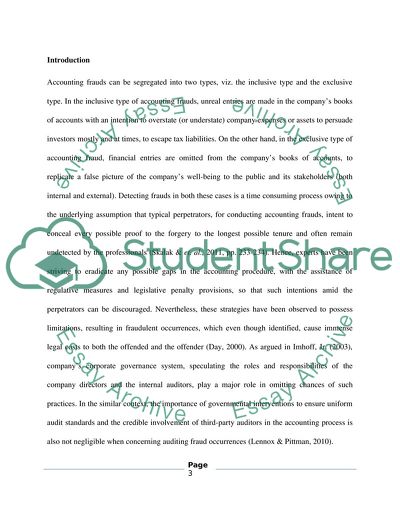Cite this document
(Accounting is the collection, summarization and communication of a Essay - 1, n.d.)
Accounting is the collection, summarization and communication of a Essay - 1. https://studentshare.org/finance-accounting/1813172-accounting-is-the-collection-summarization-and-communication-of-a-firms-financial-information-for-the-management-stakeholders-individuals-and-others-to-help-them-make-sound-financial-decisions-however-following-a-series-of-recent-financial-scand
Accounting is the collection, summarization and communication of a Essay - 1. https://studentshare.org/finance-accounting/1813172-accounting-is-the-collection-summarization-and-communication-of-a-firms-financial-information-for-the-management-stakeholders-individuals-and-others-to-help-them-make-sound-financial-decisions-however-following-a-series-of-recent-financial-scand
(Accounting Is the Collection, Summarization and Communication of a Essay - 1)
Accounting Is the Collection, Summarization and Communication of a Essay - 1. https://studentshare.org/finance-accounting/1813172-accounting-is-the-collection-summarization-and-communication-of-a-firms-financial-information-for-the-management-stakeholders-individuals-and-others-to-help-them-make-sound-financial-decisions-however-following-a-series-of-recent-financial-scand.
Accounting Is the Collection, Summarization and Communication of a Essay - 1. https://studentshare.org/finance-accounting/1813172-accounting-is-the-collection-summarization-and-communication-of-a-firms-financial-information-for-the-management-stakeholders-individuals-and-others-to-help-them-make-sound-financial-decisions-however-following-a-series-of-recent-financial-scand.
“Accounting Is the Collection, Summarization and Communication of a Essay - 1”. https://studentshare.org/finance-accounting/1813172-accounting-is-the-collection-summarization-and-communication-of-a-firms-financial-information-for-the-management-stakeholders-individuals-and-others-to-help-them-make-sound-financial-decisions-however-following-a-series-of-recent-financial-scand.


